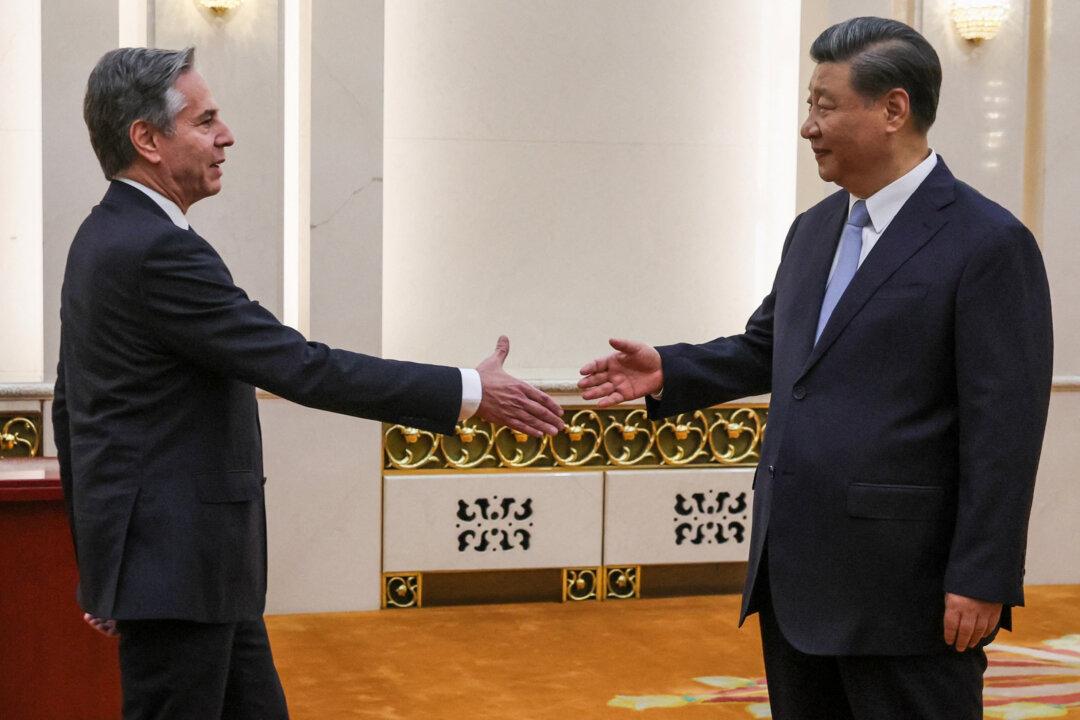U.S. Secretary of State Antony Blinken is meeting Chinese leader Xi Jinping on Monday, hours after concluding his talks with China’s top diplomat Wang Yi.
Blinken arrived in China on June 17 for the start of a two-day visit, a trip that the Biden administration seeks to maintain open lines of communication with the Chinese Communist Party (CCP).





